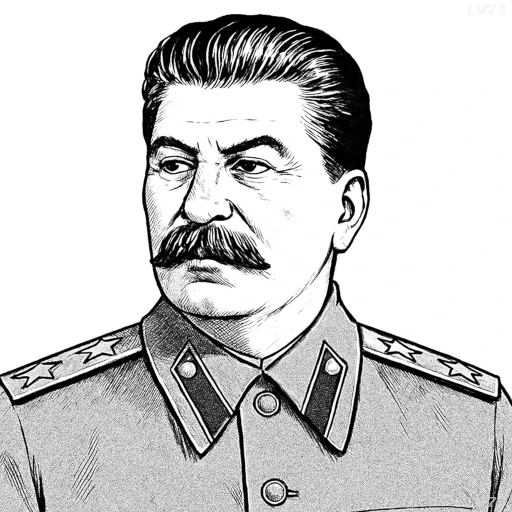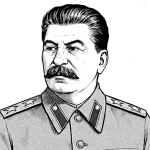“A sincere diplomat is like dry water or wooden iron.”

- December 18, 1878 – March 5, 1953
- Born in Georgia
- Politician
table of contents
Quote
“A sincere diplomat is like dry water or wooden iron.”
Explanation
This quote reflects Stalin’s cynical view of diplomacy and the dishonesty he perceived in international relations. By comparing a sincere diplomat to “dry water” or “wooden iron”, Stalin is suggesting that such a diplomat is an impossibility, akin to something that cannot exist because it is contradictory by nature. In Stalin’s worldview, diplomacy was often a tool used by states to disguise their true intentions, manipulate others, and secure power through strategic deception. Diplomats, in this context, were expected to engage in negotiations and compromises not with sincerity but with calculation and pragmatism.
Under Stalin, the Soviet Union’s foreign policy was pragmatic and self-interested, often characterized by realpolitik—where actions were guided more by the pursuit of power than by idealistic notions of fairness or peace. Stalin himself was known for his willingness to make temporary alliances for strategic purposes, such as the Nazi-Soviet Pact of 1939, and for breaking agreements when it suited Soviet interests. This approach to diplomacy rendered the idea of a “sincere” diplomat laughable, as it would have been seen as naïve or weak. Stalin’s quote highlights his belief that in the realm of international relations, sincerity and honesty had no place if a nation wished to protect and expand its power.
In today’s world, this quote serves as a critique of the complexities of global diplomacy, where nations often engage in strategic negotiations that may involve half-truths, compromises, and hidden agendas. While the value of diplomacy in resolving conflicts and promoting peace remains undeniable, the quote highlights the realpolitik that often underpins international relations, where sincerity can sometimes be viewed as impractical. However, it also serves as a reminder that honesty and trust are essential for lasting peace and cooperation in global diplomacy, and should not be discarded in favor of tactical manipulation.
Would you like to share your impressions or related stories about this quote in the comments section?

